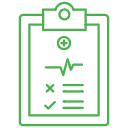Why is Meth so Addictive

Methamphetamine is a subcategory of amphetamine that is more potent. Crystal methamphetamine is the strongest form, which makes it the most addicting and the most devastating to abuse. Chronic methamphetamine users, regardless of whether they use crystal meth or a weaker strain, often experience some of the most intense withdrawal of any drug.
Why do people abuse amphetamine and methamphetamine? What are the effects of long-term meth use? How can meth users get treatment? Why Meth is So Addictive?
Learn all the basics of meth addiction, including who’s most at risk for drug use and how they can get help.
Jump to
- Medicinal Meth
- Slang Terms for Methamphetamine
- Risk Factors for Substance Abuse
- Signs of Meth Abuse
- Short-Term Effects of Methamphetamine Abuse
- Long-Term Effects of Methamphetamine Abuse
- Withdrawal Symptoms
- Risks With Unmonitored Meth Withdrawal
- Treatment for Methamphetamine Addiction
- Meth Abuse Prevention
Medicinal Meth
Meth often gets a bad reputation due to its illegal market and rampant drug abuse. However, many people do not know about its uses in the medical field. Medicinal meth (an oral pill prescribed in rare cases) is sometimes used to treat ADHD and obesity.
Prescription methamphetamine usually goes by the name “Desoxyn”. This drug is heavily regulated to prevent abuse and illegal selling. Unlike most medications, you cannot refill the description. You must receive a new prescription each time you run out.
Slang Terms for Methamphetamine
Outside of the rare medical applications, meth is typically acquired through illegal drug dealers who capitalize on addiction. They often find higher-risk individuals and pressure them into trying meth for the first time. Usually, this first batch is higher grade than what the dealer would usually sell for the price, which will lead people to become addicted as soon as possible.
Street names for meth include…
- Speed
- Ice (used to refer to crystal meth)
- Super Ice
- Crystal
- Crystal glass
- Chalk
- Gak
- Crank
- Scooby Snax
- Shabu
- Hugs and Kisses
- And many more
Risk Factors for Substance Abuse
While many people believe meth users are lazy or simply don’t care about their lives, this is usually not the case. Most instances of meth abuse can be traced to a common set of causes. These risk factors include the following:
Sex
Ease of access
Family history of drug use
Peers pressure
An abusive or unstable environment
Race
Sexuality
Education
Traumatic history
Mental illness
Other substance abuse
In addition to these risk factors, teenagers and young adults are also more likely to abuse meth after experiencing its positive effects one time. Some forms of meth produce a high that can last more than a day.
Why is meth so addictive? Meth is also a powerful stimulant that can temporarily boost productivity. In fact, German soldiers were given meth during World War II so they could ignore sleep and other basic requirements in their hyper-focused state.
However, what most people abusing meth don’t realize is the devastating effects it can have on a person’s life. Organizations such as the Drug Abuse Warning Network and the Drug Enforcement Administration devote a lot of time and research toward examing the effects of meth use in an attempt to create a drug-free world.
Signs of Meth Abuse
Meth, especially crystal meth, is one of the most addictive drugs in circulation. It is arguably more addictive than heroin and cocaine.
According to a 2020 study by the National Institute on Drug Abuse, nearly over 2.5 million Americans aged 12 and older reported using meth in the past year. Since people don’t usually admit to drug usage, it can be assumed that the actual number is much higher. At least half that amount is suspected to have a meth addiction.
When a person suspects a loved one of having a meth addiction, there are some common signs they can see. The most obvious sign is sudden strange behavior that is not related to mental illness. This behavior can range from odd speech to bizarre actions that clearly demonstrate the individual is not fully aware of reality.
Additionally, a meth user will often cut contact with family and peers in favor of chasing long highs. The addicted user will abandon work and other responsibilities such as taking care of pets, personal hygiene, paying bills, and grocery shopping. The effects of meth addiction can completely alter an individual’s life, turning the person into someone unrecognizable to the people who know them.
Short-Term Effects of Methamphetamine Abuse
Meth abuse produces a wide range of short-term effects. These include sudden or severe weight loss, irregular heart, lack of appetite, increase energy, shortness of breath, and euphoria. These side effects can occur after just one use and become more intense and damaging over time.
Long-Term Effects of Methamphetamine Abuse
Even more extensive than the short-term effects is the list of long-term effects, some of which are irreversible. The longer a meth user indulges, the worse the effects will be on their body. Using crystal meth results in more severe forms of these symptoms.

Physical Symptoms
- Impaired movement due to potentially irreversible damage to the central nervous system
- Brain damage
- Arrhythmia (irregular heartbeat)
- Hypertension (high blood pressure)
- Seizures
- Malnutrition and being underweight due to undereating
- Hyperthermia (abnormally high body temperature)
- Excessive energy
- Lack of sleep
- Stroke
- Kidney failure
- Shortness of breath
- Premature aging
- Meth Mouth

What Is Meth Mouth?
Meth mouth is a serious dental health problem caused by the continuous use of meth. This dental problem is distinguishable by a series of black, rotting teeth. Unfortunately, these teeth are rarely able to be saved. As a result, they usually continue to decay until they are removed or cause more serious issues.
Symptoms of this condition include a perpetually dry mouth, cracked teeth, tooth decay, gum disease, legions, and pain.

Behavioral Symptoms
- Withdrawal from family and peers
- Neglecting hobbies and interests
- Stealing to fund the drug habit
- Neglecting responsibilities, such as bills, pet care, child care, personal grooming, etc
- Increase in risky behavior
- Lying to friends and family
- Violent behavior
- Increased sexual activity
- Inability to work effectively
- Increased interest in other drugs

Mental Symptoms
- Hyper-focus paired with an inability to concentrate on multiple tasks
- Memory loss
- Paranoia
- Depression
- Anxiety
- Hallucinations
- Delusions of grandeur
- Temporary psychosis
- Rushes of euphoria
- The psychosomatic feeling of “meth bugs” moving underneath the skin
- Rapid thinking paired with impaired thought processing
- Worsening previously existing mental illnesses
- Decreased functioning due to damage to the central nervous system, which controls thinking, learning, and emotions
- Suicidal thoughts or actions

Withdrawal Symptoms
Perhaps the most disturbing part of meth use is the withdrawal process. Meth is infamous for having one of the most difficult withdrawals of any drug. That is part of what makes the drug so addicting. Even when users want to stop, the intense physical and mental withdrawal symptoms discourage them.
One of the most common effects of meth withdrawal is intense cravings. Quitting any drug will result in cravings–physical, mental, or both. However, meth cravings are painful, obsessive desires that overwhelm the body and mind. Even though the act of using meth resembles injecting toxic waste into the body, the withdrawal process forces all of the negative effects to happen all at once rather than building over time.
Other withdrawal symptoms include…
- Mood disturbances, especially agitation
- Excessive sleeping coupled with fatigue
- Depression and anxiety
- Restlessness despite the increased energy from meth use dissolving
- Worsening of pre-existing physical or mental health conditions
- Psychosis may reach its extremes during this time of heightened anxiety
- Excessive hunger
- Intense headaches
Risks With Unmonitored Meth Withdrawal
People who attempt to stop cold turkey without a system of support fail at an overwhelming rate. A failed attempt causes more frustration, which results in a person further abusing drugs. People who try this extremely dangerous method of quitting are also at higher risk of later overdosing or committing suicide.
Individuals suffering from methamphetamine abuse experience the best results when they commit themselves to an inpatient program at an addiction treatment center. Having someone to hold the user accountable and stick by their side through the worse of the withdrawal is a vital part of methamphetamine addiction treatment.
Treatment for Methamphetamine Addiction
Treating meth addiction can be a difficult task. As with other drugs, the user believes they need the drugs to feel fulfilled or to mitigate agonizing symptoms of withdrawal. Meth addiction complicates matters by making the withdrawal even more nightmarish on both the body and the mind. Like cocaine and so many other drugs, meth addiction takes over the user’s entire life to the point they neglect their mental, social, and physical health without noticing the damage they’re causing.
At Crestone Detox Austin – Alcohol & Drug Rehab, we are prepared to handle the worst addiction symptoms to help restore patients to their full potential. From milder amphetamine to crystal meth, we are experienced in handling all types of substance abuse. If you or a loved one is suffering from drug addiction, contact us today to begin an effective treatment with a team of caring, devoted experts.
Meth Abuse Prevention
The best way to handle the effects of meth addiction is to prevent it from occurring. If you know you have one or more risk factors, please do not attempt to take methamphetamine or any other drugs. Your well-being is more important than a quick indulgence.
If you feel you need to use a substance to improve your life, contact a licensed therapist to discover other ways to add fulfillment to your life. A psychiatrist can prescribe you legal medication to treat anxiety, depression, and other conditions that may be hindering your enjoyment of life. Be open with trusted friends and family members about how they can help you step away from the temptation of using drugs.
Have you already tried meth once and want more? Don’t wait for it to become an addiction. Get help immediately to manage your symptoms and learn healthy coping mechanisms.




